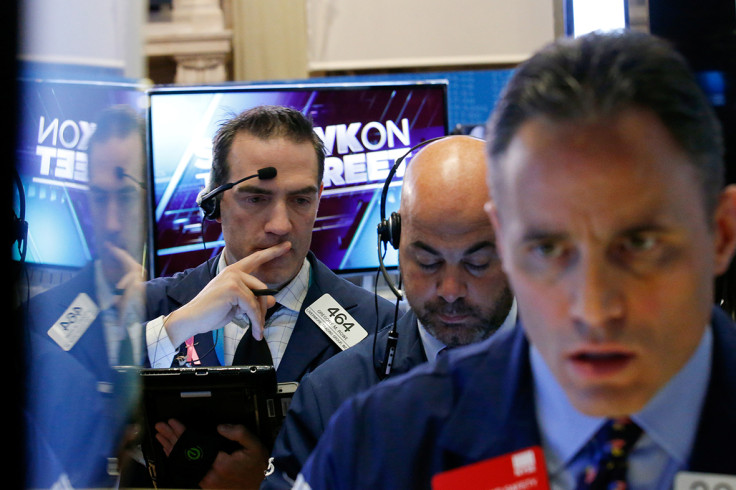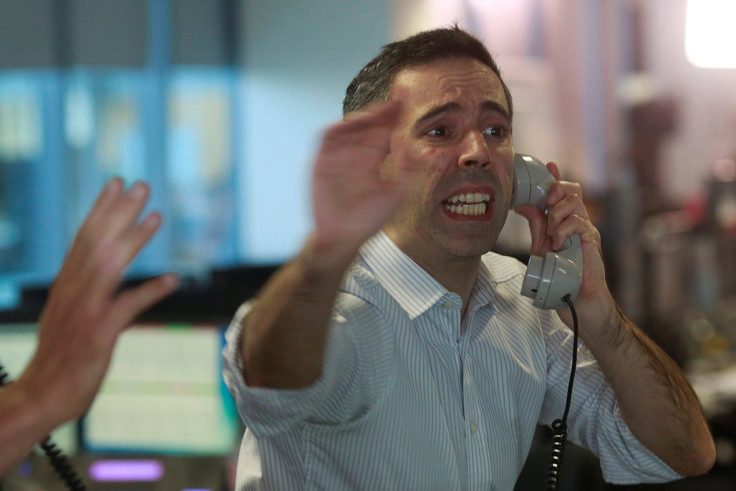The end of easy money: Central bankers spark fears among investors
Central banks in the US, UK and Europe signalled they might end the loose monetary policy that has injected trillions of dollars into their economies.

Fears that central banks are preparing to unwind years of easy money policies rattled global markets this week.
Stock and bond markets in the US and across Europe saw wide-spread selling, wiping billions off their values, after central banks hinted they might end the loose monetary policy that has injected trillions of dollars into their economies in a bid to jump-start sluggish growth following the financial crisis.
Mario Draghi, the president of the European Central Bank started the ball rolling in a speech on Tuesday calling for prudence as part of future European economic policy-making
Draghi — who, more than any other central banker, is known for his careful choice of words — sparked an immediate sell-off in European government bonds as investors interpreted his use of the word "prudence" as a stepping away from the bank's €2.3trn bond-buying programme.
As a result in Germany, 10-year government bond yields are up 21.1 basis points this week to 0.464%, the biggest weekly advance since April 2015. A rise in bond yields indicates an increase in risk, which also means they become cheaper to buy.
This was followed this week by Mark Carney, the governor of the Bank of England, another central banker known for dovish sympathies, who said that an increase in rates might be in order just a month after he indicated that interest rates would remain low.
A few days later the BoE's chief economist Andy Haldane said the Bank needed to "look seriously" at hiking rates to combat rising inflation.
In the UK this saw 10-year yield on gilts up 23.9 basis points to 1.273 per cent, the biggest weekly rise since August 2015.
Rich markets
This week US Federal Reserve chairwoman Janet Yellen described stock market valuations as being "somewhat rich."
That Draghi and Carney moved so quickly to signal this new approach has prompted some analysts to speculate that there may be some form of coordination among central bankers to warn investors who have benefited from the cheap cash boom, that has buoyed their asset-buying.
ECB officials tried to hose down talk of a rate hike, the day following Draghi's intervention telling everyone who would listen markets had over interpreted his comments.

"The ECB President mentioned that reflationary forces had replaced deflationary ones, and dealers took it as a veiled signal the central bank would reconsider its very loose monetary policy," said CMC Markets analyst David Madden.
He added: "When in fact, the ECB wanted the markets to know that its current policy was working well and it would remain in place for the foreseeable future."
At the end of the week this has led Britain's leading FTSE 100 Index ending some 1.5% lower. Germany's DAX is facing a 3.1% weekly loss, although the Dow Jones in New York has recovered from earlier falls to end the week virtually flat.
Taper tantrum
Some investors have been reminded of the taper tantrum in 2013, when former Fed Chairman Ben Bernanke sparked panic in bond markets, particularly in emerging nations, after hinting that the Fed would slow down its $85bn per month of quantitative easing.
Nevertheless the frenetic week has sent a clear signal to many investors that this set of central bankers, even more than usual, are scanning markets, watching closely for potential bubbles.
This leaves all traders with one thought dominating their investment strategies. As Sun Global Investments founder Mihir Kapadia puts it: "They key question facing investors now is when and how quickly western central banks will pull back from their unprecedented run of ultralow interest rates and huge bond buying sprees."
© Copyright IBTimes 2024. All rights reserved.






